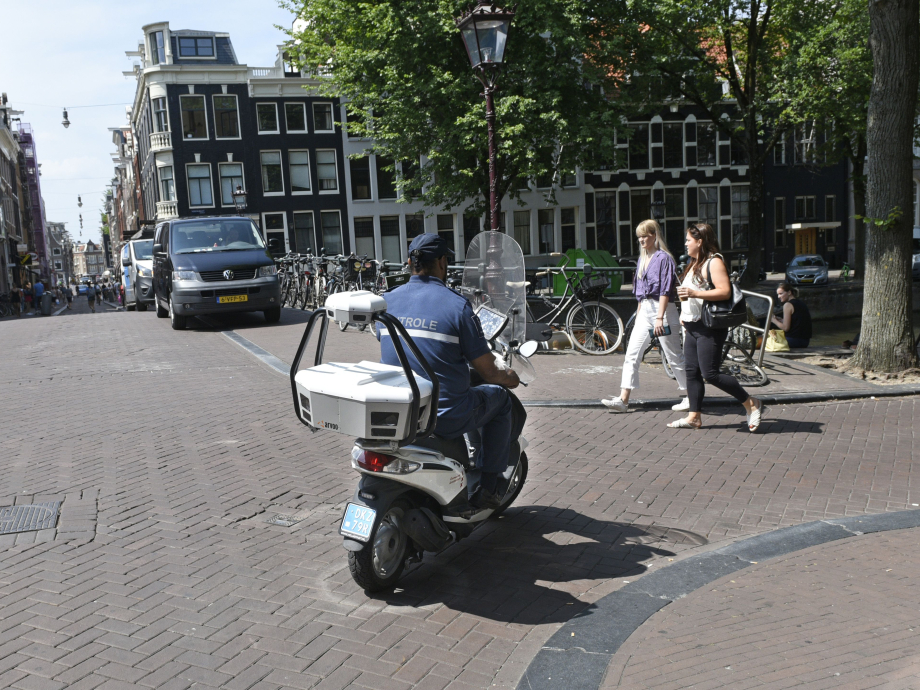Annual Report 2018
This the Rathenau Instituut's Annual Report of 2018.

'At the Rathenau Instituut we investigate what impact science and technology have on society and how that impact can be positive,' says Melanie Peters. 'This Annual Report provides an impression of what we were doing in 2018. It makes me optimistic.'
We’ve awakened from our “California dreaming”
After a decade of euphoria about all the good things that the digital transition would do for us, 2018 was undeniably the year in which we were made to face the facts. We received all kinds of signals that artificial intelligence, algorithms, and data are also having unwelcome effects on our society and on our lives. The revelations about the British firm Cambridge Analytica came to symbolise that trend. That company had misused tens of millions of Facebook accounts to aid the Trump campaign in 2016. The downfall of Cambridge Analytica meant that tech companies lost much of their sparkle and public opinion shifted. The European Commission also woke up to the problem in 2018. Not only was the EU’s GDPR privacy legislation introduced, but the Commission also imposed a record fine of 4.34 billion euros on Google for abuse of power with its Android mobile operating system.
Welcome developments
As a knowledge-driven society, we are of course open to new technologies and innovations, but ultimately it’s all about whether they have the desired effect on our lives. We also need time to adapt to innovations. It’s true we can find information increasingly quickly, but at the same time we are increasingly unable to arrive at a well-considered opinion about it. Even millennials, for whom social media are very important, are not necessarily ‘techy’. Being able to estimate the true value of news is a different skill to making extensive use of social media. And what about our autonomy if artificial intelligence determines which news items we get to see? Or our evaluation skills if software takes over decision-making from us?
Even millennials are not necessarily ‘techy’
Asking the right questions
At the Rathenau Instituut we investigate what impact science and technology have on society and how that impact can be positive. We carry out research and thus support debate in political circles and in society. A whole range of people and organisations helped us answer those kinds of questions in 2018: researchers in the humanities and the natural and behavioural sciences, as well as ethicists, NGOs, hands-on experts, and many others. They also helped us to keep asking the right questions so we can contribute to the continued positive development of the Netherlands.
In a democratic society, what counts as positive is naturally always open to discussion. We promote dialogue by means of our reports, publications, and appearances in support of Members of Parliament and in the media.
Discussion underway
To the extent Dutch society was in fact ‘California dreaming’, in 2018 we finally awakened from that dream. Our research shows time and again that no technology works by itself, not even data technology. All that technology and discussion of it are encouraging us to talk about what we actually consider to be important, in the workplace and in the context of local democracy. My hope is that we can make the choices about technology that we really want to make.
This Annual Report provides an impression of what we were doing in 2018. It makes me optimistic. We are much more aware of the undesirable societal effects of the digital transition, and are convinced that maintaining trust in digitalisation is of great importance for the knowledge society.
Trust in digitalisation is of great importance for our knowledge society.
Looking to the future
It’s now 2019 and we have a new work programme. As with previous programmes, the core idea is once again how Dutch society utilises knowledge and technology while paying due attention to people and values and keeping control of things.
That remains a terrific challenge for us to tackle. I hope you’ll continue to follow what we are doing this year, in the media and at meetings, through our publications, social media, website, and newsletter. The Rathenau Instituut is synonymous with dialogue, and we greatly appreciate your contribution in that respect.”